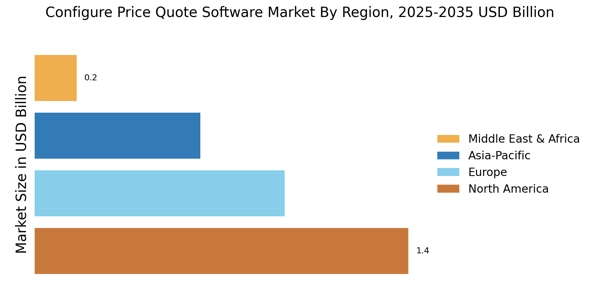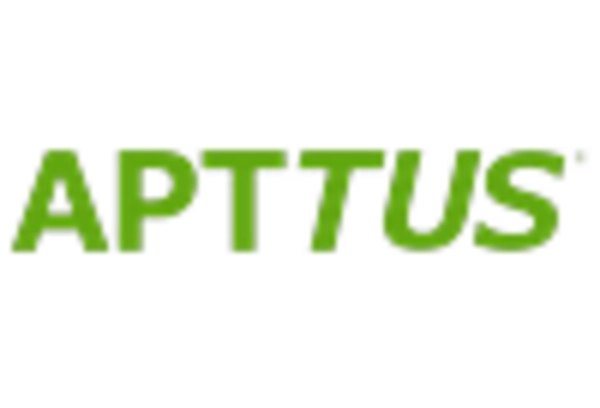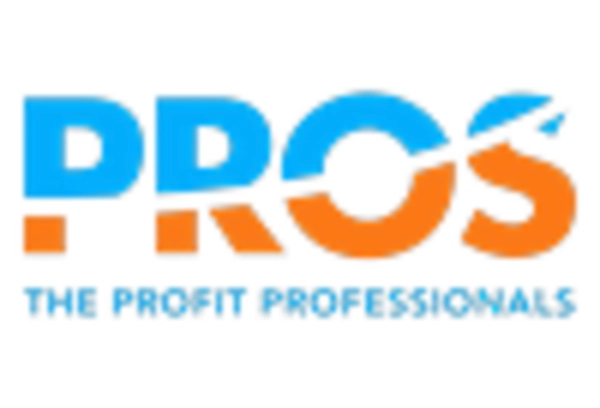Focus on Customer Experience
The emphasis on enhancing customer experience is a driving force behind the Configure Price Quote Software Market. Companies are increasingly aware that a seamless quoting process can significantly impact customer satisfaction and retention. Data shows that organizations that prioritize customer experience can see a 10% increase in customer loyalty. As businesses strive to provide personalized and efficient service, the demand for CPQ solutions that facilitate quick and accurate quotes is likely to grow. This focus on customer-centric solutions is expected to shape the future of the Configure Price Quote Software Market, as companies seek to differentiate themselves in a competitive landscape.
Rising Demand for Automation
The increasing demand for automation in sales processes is a primary driver of the Configure Price Quote Software Market. Organizations are seeking to streamline their pricing and quoting processes to enhance efficiency and reduce human error. According to recent data, companies that implement CPQ solutions can experience a 30% increase in sales productivity. This trend is particularly evident in industries such as manufacturing and technology, where complex pricing structures necessitate automated solutions. As businesses strive to remain competitive, the adoption of CPQ software is likely to accelerate, indicating a robust growth trajectory for the Configure Price Quote Software Market.
Growth of E-Commerce Platforms
The expansion of e-commerce platforms is significantly influencing the Configure Price Quote Software Market. As more businesses transition to online sales models, the need for efficient pricing and quoting mechanisms becomes paramount. Data suggests that e-commerce sales are projected to grow by over 15% annually, necessitating robust CPQ solutions to manage pricing complexities. This trend is particularly relevant for industries such as retail and consumer goods, where competitive pricing is crucial for attracting customers. The integration of CPQ software into e-commerce platforms is likely to enhance user experience and streamline operations, thereby propelling the growth of the Configure Price Quote Software Market.
Need for Enhanced Pricing Strategies
The necessity for sophisticated pricing strategies is propelling the Configure Price Quote Software Market forward. Companies are increasingly recognizing the importance of dynamic pricing models that can adapt to market fluctuations and customer demands. Research indicates that organizations utilizing CPQ software can achieve up to a 20% increase in profit margins by optimizing their pricing strategies. This need is particularly pronounced in sectors such as telecommunications and software, where pricing can be complex and variable. As businesses aim to maximize revenue and improve customer satisfaction, the demand for advanced CPQ solutions is expected to rise, further driving the Configure Price Quote Software Market.
Increasing Complexity of Product Offerings
The rising complexity of product offerings is a significant driver of the Configure Price Quote Software Market. As companies expand their product lines and introduce customizable options, the need for effective pricing and quoting solutions becomes critical. Industries such as automotive and electronics are particularly affected, as they often deal with intricate configurations and pricing structures. Research indicates that businesses utilizing CPQ software can reduce quote generation time by up to 50%, thereby improving operational efficiency. This complexity necessitates advanced CPQ solutions that can handle various pricing scenarios, suggesting a continued upward trend in the Configure Price Quote Software Market.

















